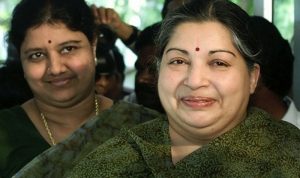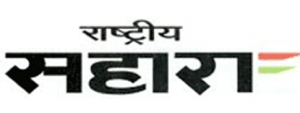
11-03-2017 (Important News Clippings)
To Download Click Here
Welcome new chapter in Indo-Israeli ties

India is deepening its engagement with not just Israel but also with Israel’s bête noire in the region, Iran. India has to pursue its national interest according to the logic of reality as it exists rather than as per some ideological scheme that made sense before the collapse of the Soviet Union. New Delhi has to engage with countries at bilateral and multilateral fora keeping its national interest in mind, without diluting its commitment to broader principles. In the course of the last two years, the Modi administration has worked on buttressing its relations by identifying areas of cooperation and collaboration with individual countries in West Asia and the Gulf, extending the work of its predecessor UPA government.It has also reached out to strengthening its engagement with the Organisation of Islamic Countries and the Gulf Co-operation Council. Israel is one of India’s three largest suppliers of arms and weapons, a collaborator in countering terror. Therefore, a focused outreach to Israel is welcome and open avowal of a policy that had been pursued covertly in the past. The end of subterfuge in relations with Israel is welcome.
Rage against the intellectual
The responses to Gurmehar’s fearless speech come at a time when the monstrous rage against the intellectual has been growing, both in India and beyond.

We had a brief glimpse of this collective failing in India when the former RBI governor, Raghuram Rajan, was severely maligned for referring to the “bright spot” interpretation of the Indian economy as a case of the one-eyed king in the land of the blind. But the murders of Pansare, Dabholkar and Kalburgi are proof of the violence against thinking differently.
With each passing day, the examples of such anti-intellectualism have proliferated. As a result, a courageous attempt to reach beyond the belligerence and war paint of two neighbours locked in battle, to point to peace as an achievable ideal, has been grievously misunderstood. It was a call for the leaders of both these nations to show true statesmanship in resolving issues and making the world a safer place for more Indians and Pakistanis. These are the thoughtful words of a young person expressing hope in the most poetic way available to her. We might well ask: What if Gurmehar had borrowed her eloquence from other peace activists, say, M.K. Gandhi or Martin Luther King or Desmond Tutu? Would she have been denounced as loudly and for as long? Still considered as “polluted”? Still tyrannised for thinking differently?
We will not know. But we do know that the Indian people today are never too far away (quite literally, a stone’s throw away) from those for whom education has thwarted appreciation of the finer aspects of language and art, theatre and music, argumentation and persuasion. The distrust of intellectuals wears many guises. It has of late revealed itself in the increasing trust placed by the government in bureaucrats, technologists and scientists to head India’s premier scholarly and educational institutions. We increasingly inhabit an educational system rooted in a deeply held belief that science and technology alone are worthy of awe and moral authority; they are less partial and partisan than those from the social sciences and the humanities.
Forget their un-encashability, all such disciplines are “residual”, gathering together only those failures who cannot make the science grade. That the new Nalanda Chancellor Vijay Bhatkar, a computer scientist, could blithely participate in Vedic rituals and a hawan to “resurrect” the true spirit of Nalanda, one of the many Buddhist monasteries that flourished before that religion declined in India, is no contradiction in these anti-intellectual times.
We are getting accustomed to the use of both “facticity” and “sentiment” in this offensive against intellectuals. On the one hand, Harvard- or Oxford-trained economists are dispensable and mocked at by the “man of the poor,” their place taken by the unquestionable certainties of government statistics. On the other hand, if our universities are currently being turned into obedience schools, it is in the name of a church-like piety and sentiment about nationalism.Only a nervous and insecure regime distrusts its intellectuals and the university as the space of critical intellection. Therefore, a new “resacralisation” of the relation between teacher and student in the time of democracy (consider the Gurukul fellowships now offered by the ICHR) is accompanied by the clamour to “militarise” the campuses. The now-expelled RSS pracharak Kundan Chandrawat who announced a bounty for Kerala CM Pinarayi Vijayan’s head, averred that “communists” must have been responsible for denying him permission to work on the political ideas of both Ambedkar and Golwalkar for his PhD. One could see “a red under every bed” as responsible for the sorry state of Indian universities, but that is not only crediting the left with too much power, it is denying history.
The distrust and persecution of intellectuals has many notorious precedents, in regimes of both the right and the left, in the long 20th century. Sustained anti-intellectualism hounded poets and scholars, scientists and musicians into silence or simply did away with their inconvenient truth. Germany in the 1930s, the Soviet Union in Stalin’s era, Mao’s Great Proletarian Cultural Revolution, Recip Erdogan’s Turkey in our own times. In each historical case, scores of intellectuals have been “disappeared”, were undermined or denigrated in the name of a greater national/proletarian good. Julian Barnes’s imaginative bio-novel on the fate of composer Dmitri Shostakovich should be a must-read for those interested in these histories, if the anti-English tenor of current anti-intellectualism can be set aside.
No more will our universities be the “kuthuhala-shalas” (curiosity centres ) of early India where people may have gathered to discuss things and exercise curiosity, as the very word “kuthuhala” suggests. Regardless of whether they existed or not, since they were written about long after the time of the Buddha when they may have
existed, that they were remembered at all should give us a sense of the rich life of the mind to which we are heir. But the life of the mind is indeed what has become an unbearable challenge for those whose anti-intellectual chants now fill our university spaces.
Date:10-03-17
Small Big Thing
Success of Indian Institute of Science in global surveys holds lessons for the country’s university system.
Comparisons between educational institutes should not be taken too far. But the IISc’s performance on institutional autonomy is salutary in times when the academic bureaucracy in the country often treats universities like another government department — or at times, even the government’s handmaiden. For example, last year, universities in Gujarat were issued a list of “preferred” topics for doctoral research by the state government. The IISc, in contrast, prides itself on its independence and, significantly, the Central agencies have allowed the Bengaluru-based institute to have its way. For instance, in 2014, the IISc forced the UGC to withdraw its directive on the four-year undergraduate programme in 2014. But Delhi University, which had begun a similar programme, had to take it back on the UGC’s directive. The IISc’s success owes a lot to the institute’s vigour, but it’s also in some measure a result of how the government has dealt with it.
Making a clean break
Why must our politicians have a near monopoly on our public spaces?

A few days later, the Dravida Munnetra Kazhagam, led by M.K. Stalin, still coming to terms with not having secured any tangible advantage from V.K Sasikala’s conviction and the battle between AIADMK leaders O. Panneerselvam and K. Palaniswami for the Chief Minister’s chair, started demanding that State funds not be used to propagate Jayalalithaa’s name as she was a “convict”. Consequently, they have gone to court on the issue.
The letter of the law has thus far not been interpreted as precluding a convicted representative’s brand from being used by the State for adorning its spaces and naming its programmes. One may argue that it is difficult to draw a line — what are the convictions that warrant a disqualification from brand promotion?
Drawing a line
If the spirit of the law is upheld, the drawing of a line becomes fairly straightforward. Section 8 of the Representation of the People Act, 1951, says that MPs or MLAs convicted of certain offences, including for corruption, are disqualified from the time they are convicted until six years have passed after their prison sentence is completed. Disqualifying someone from running for elections but allowing messages and welfare assistance to flow in their name is counter-intuitive to the spirit of the law and the consequences it seeks to impose upon those who run afoul of it.
In the case of Jayalalithaa, the situation has been made complex for a number of reasons — she was a former Chief Minister who had her share of critics but also a large follower base. The issue is bound to be emotive. The AIADMK is seeking to capitalise on the public affection and sympathy for her, especially at a time when the party’s continuation as an ideological identity is far from given and there is an internal scuffle over who her real political heirs are. Additionally, there is a legal technicality the AIADMK is relying on: Jayalalithaa was not convicted in the disproportionate assets case but charges against her abated because she had died before the Supreme Court made its judgment.However, a reading of the judgment clearly indicates that Jayalalithaa has not been convicted only because she is now deceased. Had the Supreme Court pronounced a verdict while she was alive, the situation would have been quite different as the court in its judgment, found an “inextricable nexus” between Jayalalithaa and the three who were convicted.
A new normal
Places and programmes are named after individuals to honour their memories, often because they had a special association with the place or programme’s founding. Given the court’s observations, it is only proper that Jayalalithaa’s name and photographs cease to be associated with spaces and programmes that are publicly funded at least for the period of her disqualification (10 years) in the counterfactual situation of her being alive today.
This is especially important in a system that is riddled with corruption and criminality; over a third of Lok Sabha MPs in 2014 had criminal cases against them and over a fifth were serious cases, according to data from the Association for Democratic Reforms, a think tank. In Tamil Nadu a surreal situation is developing, in which ministers are beholden to an individual sitting in a Bengaluru jail. Criminality in politics is not just commonplace, it is becoming the new normal and the use of imagery and names is part of the glue that seals this state of affairs in place.This brings us to the larger question of naming government programmes, buildings and airports after politicians — convicted or otherwise. An open debate on this is long overdue — the public imagination has room for far more than politicians, especially given the low regard politicians have for public funds and discharging their responsibilities. So why must they have a near monopoly on our spaces?
sriram@thehindu.co.in
Date:10-03-17
The right to fish
Sri Lanka’s fishermen want to assert their right over their own territorial waters, hindered by Indian trawlers.
But here is what happens at the beginning of every month and something that is not publicised. The Sri Lankan Navy Headquarters sends out a consolidated report on Indian fishing craft in Sri Lankan waters. The report for February this year was sent on March 2. It went to, among others, the Director Naval Operations (Indian) as well as the Director Operations, Indian Coast Guard. It is also usually marked to the High Commission of India in Colombo and the Sri Lankan High Commissioner in India, who no doubt forwards it to the people he deals with.
The information is quite extensive. In February, the Sri Lankans noticed approximately 835 fishing trawlers/dhows they said were engaged in bottom trawling/poaching. They were sighted in 29 locations well within Sri Lankan territorial waters, closer to the shores of Mullaitivu, Point Pedro, Talaimannar, Vetthlaikeni, Kakerathivu as well as the Delft Islands. In the annexures, in four columns, there are details such as the time when the trawlers were noticed ingressing. On February 6, off Delft there were 50 trawlers. On some days the Sri Lankans detect hundreds.
An easy crossing
You could cross the Palk Straits in less than three hours. Though there are no markers, it is easy enough to know when you are in their waters: every mobile phone comes with a GPS.
At the beginning of the decade, there were 60,000 fishing vessels for 591 fishing villages strung out along Tamil Nadu’s 1,076 km coastline. It is not clear how many of them have GPS. According to Sri Lankan estimates, a significant portion of this number has been regularly detected in Sri Lankan waters. Some are seized and the fishermen arrested.In This year, in these three months, the figures are 14 boats and 85 fishermen arrested. While the fishermen will be eventually released, the boats will be held back. If they release the boats, they are likely to be found fishing again.
Since the civil war ended, some of the dynamics have changed. Sri Lankan fishermen want to assert the right over their territorial waters. If New Delhi can erect fences many hundred kilometres long on both the eastern and western borders and institute shooting as a deterrent policy, why apply another yardstick when it comes to a much smaller neighbour?
शैक्षिक परिसर या सियासी अखाड़ा
यह अत्यंत निराशजनक है कि हमारे शैक्षिक संस्थान अपने निर्धरित उद्देश्य से दूर होते चले जा रहे हैं। नेहरू ने विविद्यालयों को ज्ञान का संचार कर सकने वाला केंद्र माना, किन्तु आज उनकी आत्मा कष्ट में होगी शैक्षिक परिसरों का यह दुरूपयोग देखकर। परिसर में राजनेता अर्थहीन, तर्कहीन, अवांछित एवं उबाऊ संवाद में भाग लेकर यह दर्शाते हैं, जैसे देश में उनके लिए इससे महत्त्वपूर्ण कोई काम न रह गया हो। लोग वे सब बोल लेते हैं, जिसे बोलने की इजाजत एक सभ्य समाज नहीं देता और किसी भी दूसरे का विरोध उन्हें अपनी अभिव्यक्ति की आजादी में खलल लगती है। असहिष्णु लोग दूसरे से सहिष्णुता की अपेक्षा अपने सार्वभौमिक अध्किार की हद तक रखते हैं और दूसरे पक्ष को सुनाने भर का मौका न मिले इसकी भी भरपूर कोशिश करते हैं। हमारा नैतिक बल इतना गिर गया है कि हम अपने विरोधी में कोई अच्छाई नहीं देख पाते। संसद, राज्य की विधान सभायें और दूरदर्शन के विभिन्न चैनलों पर होनी वाली र्चचा इस स्थिति का प्रत्यक्ष प्रमाण हरदम प्रस्तुत करती होती हैं। ज्ञान समाज की ओर कदम बढ़ाने वाले ठिठक से गए हैं और सार्थक, सृजनशील एवं उपयोगी संवाद की अपेक्षा अब बेमानी लगने लगी है। शिक्षा तंत्रा में मूल्य का अभाव, भौतिकता की अंधी दौड़ और पण्राली की कीमत पर भी अपने को सशक्त बना लेने की चाहत ज्ञान केंद्रों के वास्तविक उद्देश्य एवं निर्धारित कर्म को भी लील लेने के लिए तत्पर होने लगी है। देश की बौद्धिकता या तो किसी पक्ष की भाषा बोलने लगी है या फिर उसके विपक्ष की। ज्ञानी मौन में ही शायद सबकी भलाई हो यह सोचने पर विवश हैं या फिर कुछ बोलकर दोनों पक्षों में से किसी एक द्वारा हथिया लिये जाने के भय से शब्दहीन। हमारे पास नालंदा विविद्यालय था, जिसके बारे में ह्नेनसांग ने लिखा कि यहां के प्रहरी भी प्रखर हैं और विविद्यालय के भीतर परिर्चचा के लिए जाने से पहले आगंतुकों की परीक्षा लेते हैं, प्रहरी की संतुष्टि ही विविद्यालय के भीतर जा सकने की शर्त होती है। समाज विविद्यालय के विद्धानों की कद्र करता है और वे सभी उच्च कोटि के विद्वान और विचारक हैं। तक्षशिला विविद्यालय चाणक्य जैसे विचारक, चरक जैसे आयुव्रेदाचार्य एवं चंद्रगुप्त जैसे शासक के लिए विख्यात है। ओदान्तापुरी एवं विक्रमशिला जैसे कई अध्ययन केंद्रों का जनक भारत आज विविद्यालयों में अनुशासनहीनता की स्थिति से व्यथित है। हमारी इस स्थिति का बीजारोपण उसी दिन हो गया था जब हमने अपने विश्व प्रसिद्ध विविद्यालयों को आदर्श न मानकर लंदन विविद्यालय के मॉडल को स्वीकार किया था। उपनिवेशवादी सोच का असर हमारी शिक्षा व्यवस्था पर होना लाजमी ही है क्योंकि हमने अपनी आदर्शवादी प्रकृति की शिक्षा को त्यागकर प्रयोजनवादी शिक्षा की आकृति ग्रहण कर ली। जब शिक्षण संस्थाएं निर्ध्न और उसके विद्यार्थी समृद्ध होने लगेंगे तो उस तंत्र को बदहाल होना होगा। हमारे शिक्षातंत्र ऐसी शिक्षा देने लगे हैं, जो व्यक्ति को खुद की उन्नति की सीख तो देती है, किंतु उनको संस्था के स्थापित मूल्य एवं संस्था की बेहतरी का रास्ता नहीं दिखाती। यह दुखद है, इसे बदलना होगा, सिर्फ यदा-कदा एलुमनाई मीट कर लेने से गौरवशाली संस्थाएं उन्नत एवं आधुनिक नहीं बन सकतीं। उनके मूल्यों एवं समृद्धि की रक्षा के लिए दलगत राजनीति से दूर रह सकने वाले समर्थ, सशक्त मगर मौन मेध को आगे आना होगा । जनता की कमाई के बूते पर सस्ती शिक्षा देने वाले जवाहर लाल नेहरू विविद्यालय, हैदराबाद विविद्यालय, दिल्ली विविद्यालय एवं अन्य विविद्यालयों के शिक्षक एवं विद्यार्थी को अधिक मुखर होकर यह एहसास कराना होगा कि उनकी अभिव्यक्ति की आजादी से कहीं अधिक उनकी सामाजिक और नैतिक जिम्मेवारी महत्त्वपूर्ण है। उन्हें समाज को जोड़ना होगा, समझना होगा कि शिक्षण संस्थानों की स्थापना महज उन्हें डिग्री देने के लिए नहीं हुई और फिर यह कि इतनी सस्ती शिक्षा सुलभ कराने वाली संस्था उन्हें अपने कर्त्तव्यों से विमुख हो अधिकारों के प्रति सचेष्ट होने की नैतिक अनुमति नहीं देगी।देश और हर राज्य निजी विविद्यालयों के विकास के द्वारा अपनी जिम्मेवारी से आर्थिक तंगी के बहाने बचना चाहता है-यह भी सही नहीं है। व्यवसाय की दृष्टि से लाभ कमा सकने वाले विविद्यालय कैसी शिक्षा प्रदान करेंगे ? कौन-कौन से मूल्य स्थापित करेंगे? क्या ऐसे विषय भी पढ़ाएंगे जो दर्शन एवं मूल्य आदि से संबंधित है? रोजगार वाले विषय ही समाज की एकमात्र जरूरत नहीं। आने वाले दिनों में व्यक्तिगत स्वार्थ की पूर्ति की राजनीति का विरोध करने वाले और सत्य को सत्य कह सकने का साहस रखने वाले शिक्षित कहां से आएंगे ; यदि हम समावेशी शिक्षा दे सकने वाली संस्थान की स्थापना एवं विकास नहीं कर पाएंगे ।देश में कश्मीरी पंडितों की समस्या बड़ी है, स्वस्थ समाज के निर्माण के लिए मां बनने वाली भूखी अनुसूचित जनजाति वर्ग की महिलाओं की खुराक जरूरी है, भ्रष्टचार शासन तंत्र एवं सार्वजनिक जीवन की बड़ी चुनौती है और राष्ट्र एवं समाज प्रबुद्ध वर्ग से अपने कर्त्तव्य निर्वाह के लिए आशावान है। पुरस्कर वापसी का नाटक, राजनीतिक महत्त्वाकांक्षा को साधे की कोशिश और शिक्षा परिसरों में लामबंदी की प्रवृत्ति का विकास रचनात्मक कदम नहीं है। तटस्थ विद्यार्थियों को यह समझना होगा कि राजनीतिक जमीन तलाश करने वाले एवं व्यक्तिगत स्वार्थ की पूर्ति के लिए आंदोलन करने वाले उन्हें दिशाहीन न करे। देश में शिक्षित और बड़े पदों पर बैठे प्रबुद्धों का अपना एक खेमा है-चाहे वह वामपंथी इतिहासकारों का हो, शिक्षा माफियाओं का हो, देश विरोध के नाम पर अपने को चमकाने वालों का हो या किसी और लामबंद समूह का हो। मौन मेध को न केवल उनका प्रतिकार करना होगा, बाकी अच्छी सकारात्मक सोच विकसित कर एक स्वस्थ समाज एवं प्रगतिशील राष्ट्र का मार्ग प्रशस्त करना होगा।



